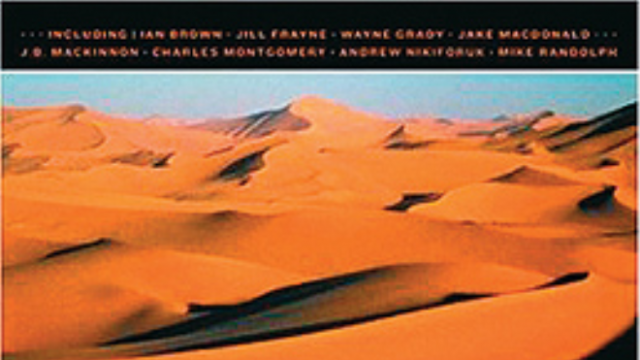This may sound like a strange confession for a magazine writer, but I’ve never been much of a fan of reading magazines. Secretly, I’ve always had the sneaking suspicion that anything of any consequence will eventually make its way into a book. Reading Way Out There by James Little (Greystone Books, Rs 600, 369pp), a new anthology of writing from Canada’s top travel magazine, almost changed my mind. Maybe I should start reading Explore, I thought.
A collection of 30-odd features from Explore, Way Out There shows that the Canadian magazine has terrific range. There’s no endless slog of gear-based, “I’m-more-daring-than-you” articles here, and none of the formulaic, begin-with-colourful-anecdote-and-end-with-hotel-prices articles that plague travel mags. From Ross Crockford’s piece about the fastest cyclist on planet Earth to Charles Montgomery’s interview with the Solomon Islands’ last surviving headhunter (‘Searching for Big Man Magik’) these are thoughtful, surprising, and above all informative stories — not of the “how I rate the service at the Plaza” variety, but the kind you remember and irritate your wife by reading aloud.
Consider, for example, Explore contributing editor J.B. MacKinnon’s piece on travelling in the Sudan (‘Behind the Grass Curtain’). It begins with a gimmicky, commercial magazine premise — MacKinnon sets out to prove that Canadians are no longer the world’s most welcomed travellers, now that Canada has begun to interfere in world affairs. But MacKinnon hardly allows the sales-pitch to distract him as he narrates his story of travelling across the southern region of the warring country. The result is a vivid and accessible portrait, all the more perceptive because it has no journalistic purpose, because the entire project, like the war, is essentially absurd.
Similarly evocative, though in a completely different vein, is Jerry Kobalenko’s feature about the extreme sport of marathon swimming. Like many outdoor pursuits, marathon swimming has in recent years changed from a feat of endurance like climbing Everest (all those paddlers who dared the English Channel) into an organised sport with a tour along the lines of the one ran by the Association of Tennis Professionals. Kobalenko manages to capture the drama of competitive swimming and the freakish psychology of the athletes who risk their lives in Canada’s freezing waters remarkably well. But I mention it here because it illustrates the great strength of many of the articles in this collection: they evoke the bizarre nature of Canada’s remote and cold expanses as dramatically as most ‘travel writing’ describes India, Africa, and other places deemed to be ‘exotic’ by editors on the other side of the world.




